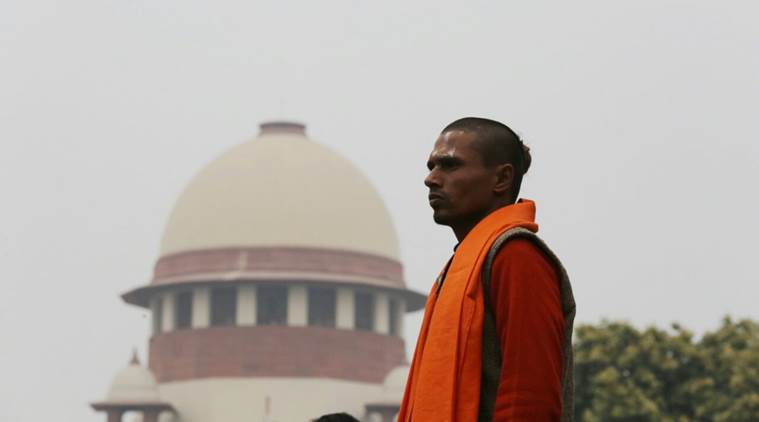Men of law, not faith
The Supreme Court seems to have learnt from its mistakes in Bhopal case while setting terms for Ayodhya mediation. However, it must relook at the panel.

Memories of the Union Carbide case came rushing to mind when I read the order in the Ayodhya case by a five-judge bench of the Supreme Court (SC) ordering a formal mediation. There, too, a settlement was recorded, but behind the backs of the parties; a settlement in which only the Union of India and Union Carbide were parties and the victims were ignored. The settlement absolved Union Carbide of all criminal and civil liability for a paltry sum of $450 million. Later, due to the protest of the victims, the criminal proceedings were restored and are still going on. Remember, the disaster occurred in 1984.
The SC has learnt from that mammoth mistake. This time, the affected parties participated in the proceedings. Some of them did object to the proposed mediation on the ground that these were “matters of faith” but the Court went ahead and appointed mediators.
The Court records there is lack of consensus on the need for mediation but having regard to the “nature of the dispute” feels compelled to order that “an attempt should be made to settle the dispute by mediation”. The Court has not clarified under what provision of law the order has been passed but feels inspired by Section 89 of the Civil Procedure Code. The Section applies for settling of disputes “outside court” when it appears to the court that “elements of a settlement” exist. The Section visualised several modes of settlement — arbitration, conciliation, judicial settlement or mediation. If the mediation is under the Arbitration and Conciliation Act 1996, it is binding as an award. This order is clearly not under the Arbitration and Conciliation Act, which is welcome. The SC has left open the question of challenge to any possible terms of settlement under the law, indicating clearly that a settlement cannot be forced on anyone.
We must thereof assume that inspired by Section 89, the SC has directed the parties to attempt to settle the dispute, leaving both parties to contest the possible terms of the settlement and make it non-binding. We must assume that the Court has exercised its inherent powers under Order LV Rule 6 which says, “Nothing in these rules shall be deemed to limit or otherwise affect the inherent powers to make such orders as may be necessary to meet the ends of justice or prevent abuse of the process of the court.”
In doing this, the SC has behaved in a statesman-like manner, leaving its judicial role to surface later. It seems the Court was of the opinion that certain disputes are not quite easy of judicial resolution and require a “healing touch”. After all, no court wants to see its own judgments violated and slandered, as with the Sabarimala judgment. Settlement by consensus is one way of settling a dispute, provided that both parties negotiate on an equal basis. In this case, unfortunately, the negotiation is taking place in the shadow of the demolition of the Babri Masjid and no responsibility had been fixed on the political party, the same party that is in power today and that spearheaded the demolition in 1992. The bargaining position is, therefore, not equal. The Court should have put in place safeguards to correct this imbalance. Keeping the proceedings confidential is not a sufficient safeguard. Keeping out political or electoral considerations would be more important.










.png)




























No hay comentarios:
Publicar un comentario